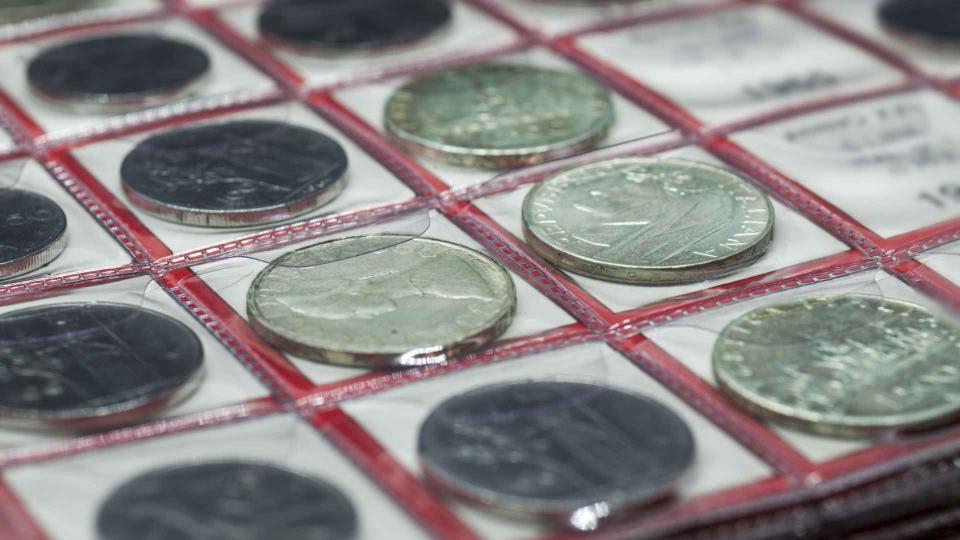Looking To Buy or Sell Valuable Coins or Bills? 7 Scam Red Flags To Watch For

Old coins and bills tucked in wallets, drawers, change jars, or even amidst your couch cushions could be worth hundreds or thousands of dollars beyond their face value.
See: If You Find a Lincoln Penny With This Distinctive Mark, It Could Be Worth up to $60,000
Find: Check Your $2 Bills — They Could Be Worth Thousands
But with every money-making opportunity comes scammers — it’s the other side of the coin, so to speak. Coin and bill collectors know how to spot frauds and con artists. But for the average person looking to unload their $2 bills for a couple of hundred bucks, it may not be that easy.
Fortunately, the scams to watch out for when it comes to buying or selling your old currency are similar to other scams. Bad actors in every industry leave clues. Here are some of the signs to watch out for when it comes to buying and selling your coins or bills.
Bad Reviews at the Better Business Bureau
A good indicator of a scam artist in any industry, negative reviews or a poor rating with the Better Business Bureau is a big red flag, according to Atlanta Gold and Coin. Likewise, look at sites such as RipOffReport.com, TrustPilot.com, and even Google reviews to ascertain how trustworthy a coin dealer might be.
Not a Member of Reputable Numismatic Organizations
Just as poor reviews are red flags, so is a lack of credentials. Atlanta Gold and Coin pointed out in a blog post that dealers who are part of the American Numismatic Association or the Professional Numismatics Guild are more likely to be reputable.
Also: 5 Best Places To Sell Rare Coins and Paper Money
New to the Business
To join PNG, according to Atlanta Gold and Coin, you must be in the industry for at least five years and hold numismatic assets of at least $175,000.
Ideally, seek out a dealer who’s been buying and selling coins and bank notes even longer. As in any industry, a company that’s been around for decades has maintained its business by exemplifying good ethics, fair pricing, and above-the-board customer service.
If a company is new, it could be someone just entering the market, or it could be a fly-by-night scammer looking to take advantage of people amidst the rising prices of gold and other precious metals.
Not Thoroughly Evaluating Your Coins or Bills
If you’re trying to sell your coins or bills, be wary of a dealer who glosses over the condition, mintage, or rarity. These factors can greatly affect the value of your coin or bill and you could wind up with an offer that’s less than your collection deserves.
Will Not Present Certificates of Authenticity
Likewise, if you’re purchasing coins or bills, request to see certificates of authenticity. Selling counterfeit coins, according to RareCoin.store, is one of the most common fraud tactics today. While not all rare coins or notes come with COAs, a fair number do — or are graded by numismatic organizations and placed in a protective flip or slab.
Selling for Extremely Low Prices
A scammer may offer their coins for well below market value. That could be because they are selling fakes. If the supposed dealer sells a counterfeit coin for half the price of what an original, authentic version would go for, the dealer can still make a profit, and you’ll be left with a fake that you can’t re-sell.
High Pressure Sales
A dealer that puts unnecessary pressure on you to make a purchase or a sale may have something to hide. They want to finalize the deal before you catch on to their dishonesty.
How To Protect Yourself
To avoid these scenarios, do your own independent research regarding the coins or bank notes you plan to sell, investigate the companies thoroughly, and don’t rush into any sales or purchases. As with most things in personal finance, if an offer for your rare coin or bill seems too good to be true, it probably is.
More From GOBankingRates
Housing Market 2023: The 10 Most Overpriced Housing Markets in the US -- 5 Are in Florida
Experts: Here's Why Nearly Every Purchase Should Be On a Credit Card
This article originally appeared on GOBankingRates.com: Looking To Buy or Sell Valuable Coins or Bills? 7 Scam Red Flags To Watch For

 Yahoo Finance
Yahoo Finance 